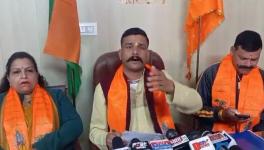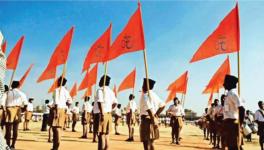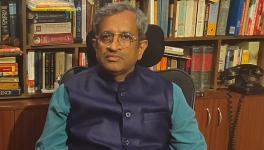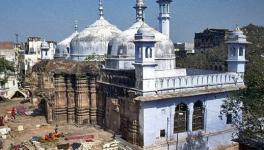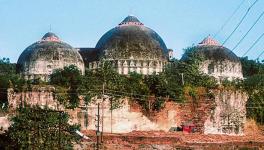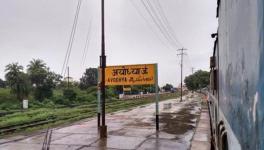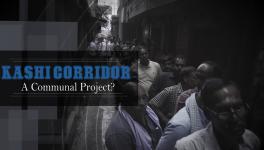Ayodhya: Can a Dispute Reach Closure if it Still Causes Pain?
Coexistence between social groups was a social reality and a primary tenet of Indian life, long before the word secular was included in its Constitution in 1976. Now that a five-judge bench of the Supreme Court has delivered a “historic” judgement on the Babri Masjid dispute, there is a sense of disquiet. This is not just on account of the asymmetries and silences in the judgement that many writers have pointed out. It is because the court has ruled that the forces who brought down the Babri Masjid are entitled to the land on which it stood. The question remains whether there can be any real closure in a dispute if the pain it has caused continues to linger.
The Babri Masjid was demolished in Ayodhya on 6 December 1992. The town it was built in once symbolised India’s composite heritage. However, it became the site of a concerted campaign to damage India’s secular foundations long before the mosque itself was broken. This campaign, which was active through the 1980s, ultimately led to the “illegal act”—to cite the judgement—of demolishing the mosque.
No doubt, most mainstream political formations have welcomed the Ayodhya verdict, calling it an end to a bitter dispute, but the sense of disquiet persists, and not just among minority groups. One reason is the “incoherence” between the “premise and conclusion of the judgement” and for setting a precedent where faith wins over the rule of law. The angst also arises because while the ruling says that faith cannot confer title to a property, it still remains oriented to faith-based claims in drawing conclusions. Questions are also being raised about why the “Muslim side” alone had to continually prove that it had exclusive possession of the disputed site, whereas the “Hindu side” faced no such pressure. For all these reasons there is a sense of unease after the ruling.
Many have expressed the opinion that the Babri Masjid issue needed closure, for it had lingered on since colonial times, and escalated after 1949, when idols were placed in the inner chamber of the mosque. This point of view, while apparently popular, is also eerily similar to those who had supported the revocation of Article 370 in Jammu and Kashmir.
In both cases, a decision has been taken but a sense of justice still appears to elude the aggrieved. For instance, watch one of the parties’ to the Babri dispute speak about the decision: He finds it “unjust” but respects it. One writer has expressed his sentiment that the conclusion of the Babri Masjid title suit has proved to be a “stalker’s dream” come true: Its history documents 150 years of violence and intimidation, and yet the court has granted the title to the harassing party.
The former Supreme Court judge Ashok Ganguly, who was once venerated by the ruling Bharatiya Janata Party (BJP) for his ruling against its rival Congress party on the 2G telecom scam, has said that he finds the Ayodhya decision a little difficult to accept as a “student of the Constitution”. “Minorities have seen for generations that there was a masjid there. It was demolished. On top of that, a temple is being built, according to the judgment of the Supreme Court. This has raised a doubt in my mind…. As a student of the Constitution, it is a little difficult for me to accept it,” he told the Telegraph newspaper. The difficulty, as he says, arises on account of the Supreme Court clearing the way for a temple to be built on the site where a mosque once existed, in full public knowledge.
Noted public intellectual Pratap Bhanu Mehta has said in the context of the Babri ruling that there are “reasons to be nervous” on three fronts, “Psychological, institutional and political.” He finds that there has been a “reconfiguration of Hinduism”, wherein it is now represented by completely political, rather than spiritual, forces.
Those who claim, even believe, that the judiciary has finally settled this matter, should therefore ask themselves if the principles and values of the Indian republic broken on 6 December 1992 are also on a path of recovery now. Forgotten by them is the fact that Indian society is based on notions of purity and pollution and a graded hierarchy that has lasted for centuries with scriptural sanction. For such a country, becoming a republic was a veritable revolution; the result of a long struggle by the persecuted, marginalised and oppressed to eliminate discrimination based on caste, gender, community, race or nationality. The assurance was that India would not descend into a theocratic state.
We have travelled a long distance since Independence, when the Indian people turned a new leaf both psychologically and politically.
The genesis of the 9 November Supreme Court ruling lies in the verdict given by the three-member Lucknow Bench of the Allahabad High Court in 2010, which had effectively turned a property dispute between three parties into a matter of beliefs and sentiments; paving the way for facts to exit. One result of making this shift is the jubilation we witness in the Hindutva camp today. After all, the Hindutvadis’ long-standing demand has been to keep matters of faith above the law.
Now other issues between the Hindus and the Muslims of India are likely to be raked up. As any observer of South Asian history knows, this is not the only route India could have trodden. A mosque in India and a gurudwara in Pakistan, which share a very similar past of conflict and discord, present an alternative before it. While India’s Babri Masjid was demolished by Hindutva fanatics in 1992. The site in Lahore, Shahidganj gurudwara, venerated by Sikhs, had the opposite denouement.
The Shahidganj gurudwara was at the core of a bitter battle between the Sikhs and Muslims after the British occupation of Punjab in the late 1840s. After a Sikh conquest of Lahore in 1762, a Gurudwara was built in the courtyard of a mosque in the city, that had been built during the reign of the 15th-century Mughal emperor, Shah Jahan. In the winter of 1935, the Sikh claim to this property and the Muslim’s counter-claimants even sparked riots in pre-Partition Lahore. Then the Privy Council intervened in the matter and decided, in 1940, in favour of the possessors of the land, namely the Sikhs.
Even after Partition, when Pakistan was carved out as a new country, there were several attempts by Muslim parties to convert the gurudwara into a mosque. “Surprisingly, the court upheld its decision made under colonial rule. Though the property was abandoned, Muslims were barred from turning it into a mosque.” Today Islam is the state religion of Pakistan, yet it has continued to protect the rights of its religious minority (less than 0.6%) of its population) to their legal rights.
Consider the Ayodhya ruling afresh in light of the Shahidganj dispute. As India is a secular republic. There were expectations that its judiciary would set a similar, if not more elevated, precedent. These assumptions have been belied.
Thankfully, celebrations in the Hindutva camp are muted for now, but it would be foolhardy to think that those who view “politics as an apocalyptic conflict between Hindus and others” will be satiated by this verdict. There is every chance that they would be emboldened. During the eighties and nineties, when the Hindu right was leading the movement to demolish Babri Masjid, their slogan was that no mosque or mazaar should be left intact: “Teen nahin ab tees hazaar, bachey na eko masjid-mazaar.” It is wishful thinking that they would suddenly relapse into a selective amnesia.
Subhash Gatade is an independent journalist. The views are personal.
Get the latest reports & analysis with people's perspective on Protests, movements & deep analytical videos, discussions of the current affairs in your Telegram app. Subscribe to NewsClick's Telegram channel & get Real-Time updates on stories, as they get published on our website.









